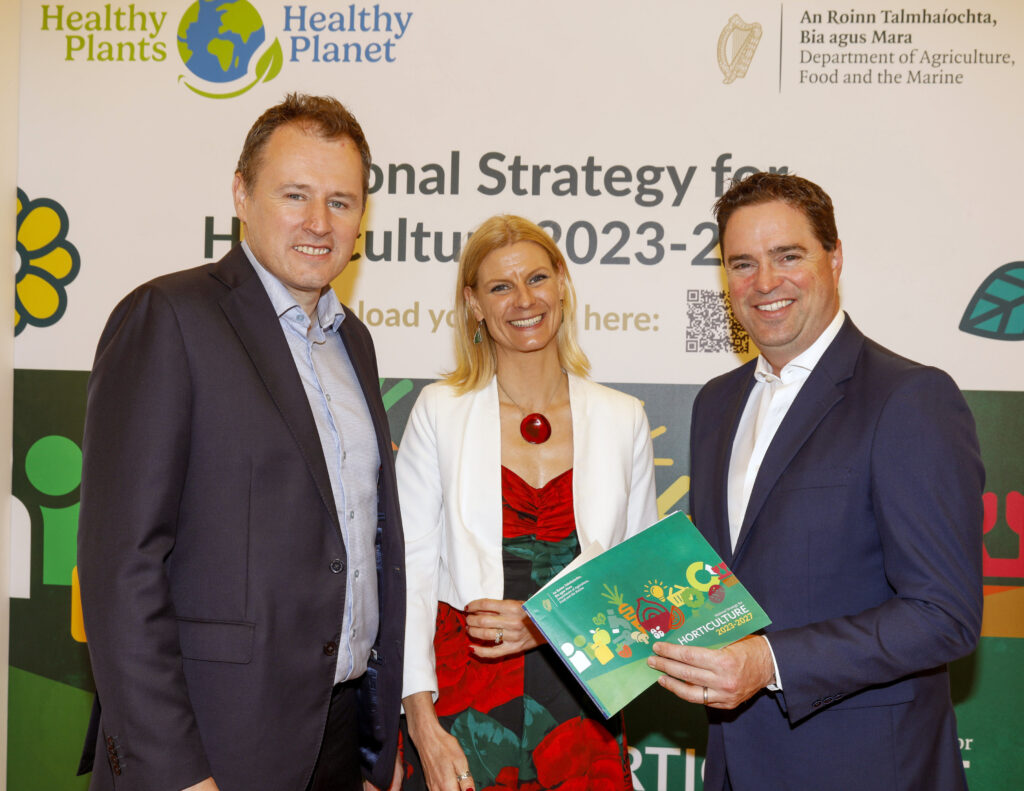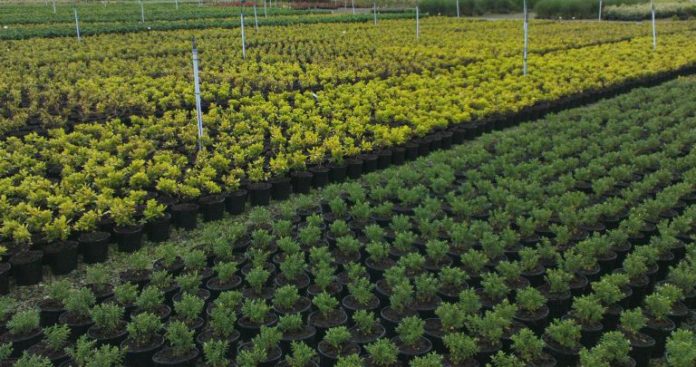Minister for Agriculture, Food and the Marine Charlie McConalogue T.D. together with his colleague Senator Pippa Hackett, Minister of Minister of State for Land Use and Biodiversity with special responsibility for Horticulture, launched a new National Strategy for Horticulture 2023-2027 at Bloom 2023.

The National Strategy for Horticulture 2023-2027 is a major milestone for the horticulture sector. The stakeholder-led Strategy sets down a clear vision for the sector to grow a more profitable, value-added sector, driven by innovation and sustainability and provides a roadmap for the sector to achieve this potential.
The publication of the National Strategy for Horticulture 2023-2027 aligns with and delivers on a specific action in Food Vision 2030 by providing a road map for the horticulture industry to ensure the future economic, social and environmental sustainability of this crucial sector.
Minister McConalogue said: “I fully support Ireland’s new National Strategy for Horticulture. It charts an important way forward for this crucial industry which many citizens depend on for their livelihoods and for access to fresh local quality produce. I recognise the challenges in relation to fairness and transparency in the supply chain and we must strengthen the position of growers in the marketplace. I want to see this sector grow and flourish in the years ahead and I am confident that it will with strong leadership and collaboration between the sector’s key players in implementing the actions in this Strategy.”
Minister Hackett said “I am delighted to launch this important Strategy for the sector and I thank everyone involved, in particular the Horticulture Industry Forum for their work to date. However, our work is not finished and to achieve our vision will require us to work smarter, leverage relevant science and technology, value our existing growers and businesses and encourage new entrants.”
Minister Hackett called on consumers at Bloom to “recognise and value the Irish Horticulture sector and to play their part by supporting fresh, locally grown produce and Irish trees and plants when it is available, be that in the supermarket, garden centre, your local grocer or on the menu in restaurants across Ireland.”
Eight key strategic actions have been identified in the Strategy as key to addressing the challenges and opportunities for the industry and implementation of these actions will drive change and growth across all the horticulture industry’s sub-sectors.
The eight Key Strategic Actions in the Strategy are:
-
- Strengthen the position of the grower in the marketplace
- Develop a written charter between growers, consolidators and retailers, and increase consumer demand for local, in-season, fresh, quality fruit, vegetables and plants
- Establish the framework for a permanent non-EEA seasonal workers’ scheme for the horticulture industry to ensure a reliable supply of skilled seasonal workers in the short to medium term while innovation and research into automation is intensified
- Review horticulture course availability and suitability for a modern dynamic sector, enabling the educational platforms to attract talent that will drive the horticulture sector to realise its true potential
- Research and Development for the industry
- Better data and information for better insights
- Integrate Horticulture back into the broader Agricultural Knowledge and Innovation System
- Support innovation and diversification
If all the actions in this Strategy are implemented, a 30% increase in farmgate value from €529 million in 2022 to €688 million by the end of 2027 is anticipated, generating more rural employment and thriving local communities.




